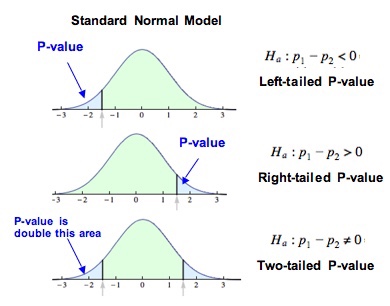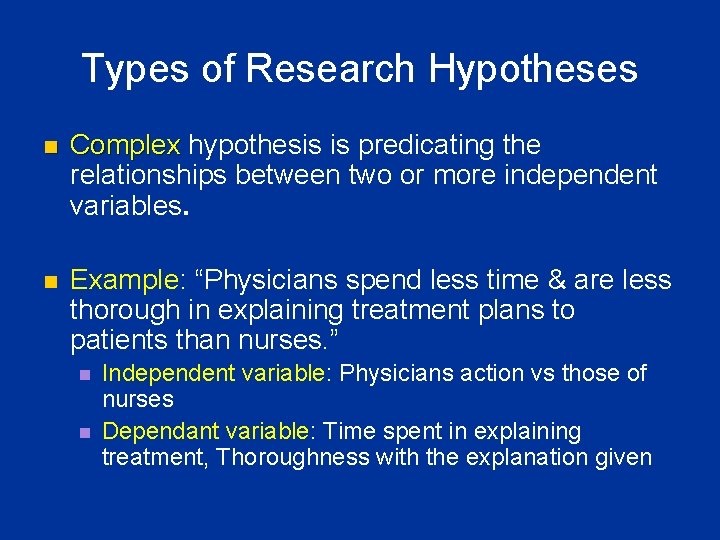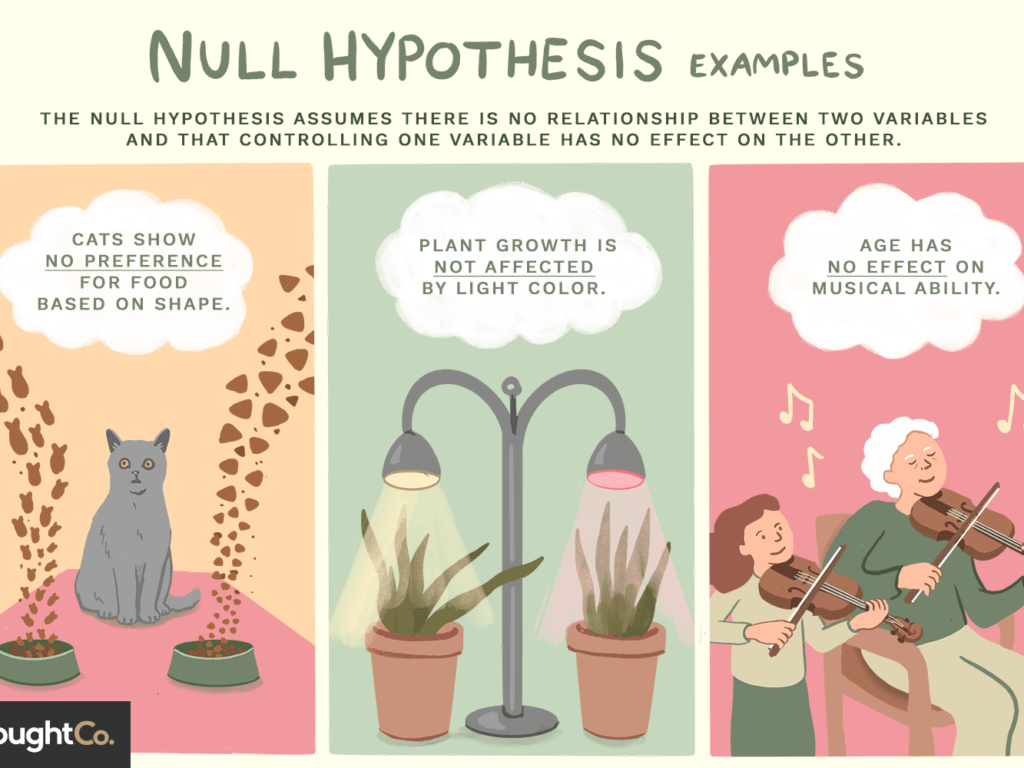
* Simple hypothesis
* Complex hypothesis
* Null hypothesis
What is a hypothesis
A hypothesis states your predictions about what your research will find. It is a tentative answer to your research question that has not yet been tested. For some research projects, you might have to write several hypotheses that address different aspects of your research question.
A hypothesis is not just a guess — it should be based on existing theories and knowledge. It also has to be testable, which means you can support or refute it through scientific research methods (such as experiments, observations and statistical analysis of data).
Variables in hypotheses
Hypotheses propose a relationship between two or more variables. An independent variable is something the researcher changes or controls. A dependent variable is something the researcher observes and measures.
Daily apple consumption leads to fewer doctor’s visits.
In this example, the independent variable is apple consumption — the assumed cause. The dependent variable is the frequency of doctor’s visits — the assumed effect.
Three steps to hypothesis testing
- State the null hypothesis and alternative hypothesis
- Decide on test static and critical value
- Compute p-value. If P-value is less than the critical value reject the null hypothesis and accept the alternative hypothesis
Simple hypothesis
Simple hypotheses are ones which give probabilities to potential observations. The contrast here is with complex hypotheses, also known as models, which are sets of simple hypotheses such that knowing that some member of the set is true (but not which) is insufficient to specify probabilities of data points.

Complex hypothesis
Complex hypothesis is that one in which there are multiple dependent as well as independent variables. Example: Global warming causes icebergs to melt which in turn causes major changes in weather patterns.

Null hypothesis
A null hypothesis is a hypothesis that says there is no statistical significance between the two variables in the hypothesis. … For example, a null hypothesis would be something like this: There is no statistically significant relationship between the type of water I feed the flowers and growth of the flowers.

Create a Null Hypothesis
Depending on your study, you may need to perform some statistical analysis on the data you collect. When forming your hypothesis statement using the scientific method, it’s important to know the difference between a null hypothesis vs. the alternative hypothesis, and how to create a null hypothesis.
- A null hypothesis, often denoted as H0, posits that there is no apparent difference or that there is no evidence to support a difference. Using the motivation example above, the null hypothesis would be that sleep hours have no effect on motivation.
- An alternative hypothesis, often denoted as H1, states that there is a statistically significant difference, or there is evidence to support such a difference. Going back to the same carrot example, the alternative hypothesis is that a person getting six hours of sleep has less motivation than someone getting eight hours of sleep.






























